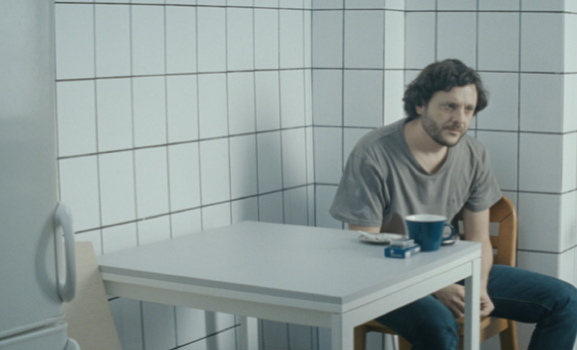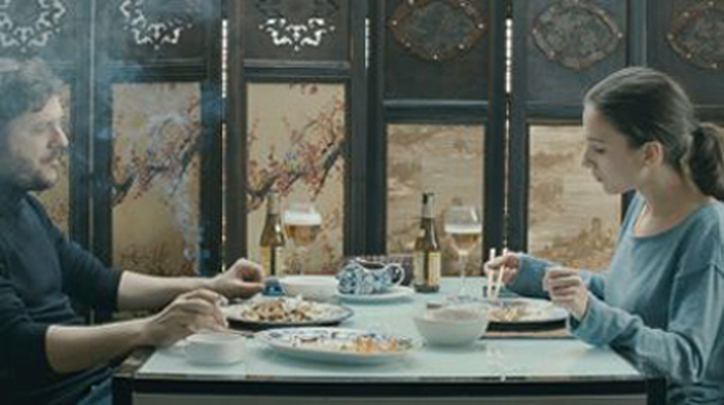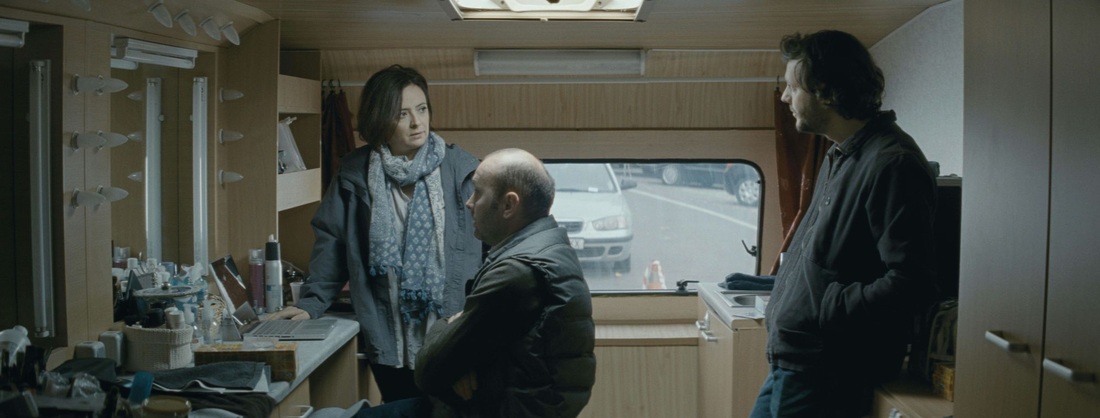 A film consisting of merely 17 shots, mostly of conversations, and filmed almost entirely with a static frame, Corneliu Porumboiu's When Evening Falls on Bucharest or Metabolism is a oblique, challenging examination of cinema and life. The film is centered around Paul, a brilliant, egotistical film director and his leading actress. Porumboiu isn't interested in their relationship on set, but rather the time they spend together off-set, where they rehearse together, dine together, etc. When Evening Falls on Bucharest or Metabolism is a film in which I struggled at times to understand its meaning. This is a film about the power of the banal, the insignificant occurrences and interactions that seem trivial but ultimately form our lives and allow it to continue. It's an examination of how form dictates content. Paul and his main actress spend lots of time together, with Porumboiu focusing on the smaller moments which many would deem mundane or insignificant. We see the small, typically insignificant moments instead of the end product, being the film they are making together. This reinforces Porumboiu's notion that these insignificant moments of syntax or language may not be insignificant at all, suggesting that communication isn't as clear cut as many determine it to be. The film's opening scene is another instance of how Porumboiu comments on form, where these two main characters discuss the strengths and weaknesses of digital vs. film. The director talks about the limitlessness of digital filmmaking, arguing that it creates an entire new way of filmmaking when it comes to approach. I believe that with When Evening Falls On Bucharest or Metabolism, Porumboiu has created a study of syntax and language, specifically using the construction of cinema through these two main protagonists as a way to approach the discussion.
0 Comments
Leave a Reply. |
AuthorLove of all things cinema brought me here. Archives
June 2023
|


 RSS Feed
RSS Feed
